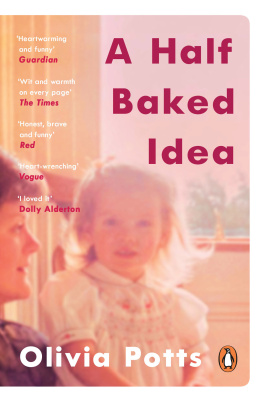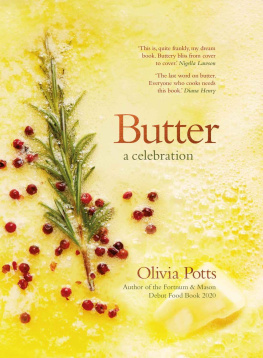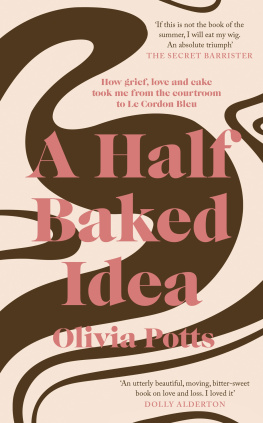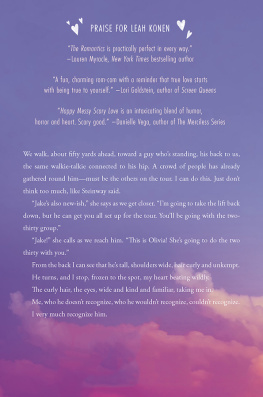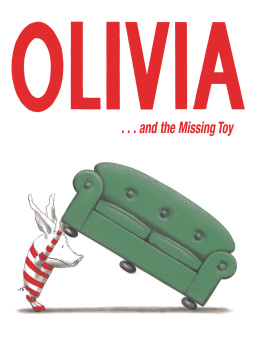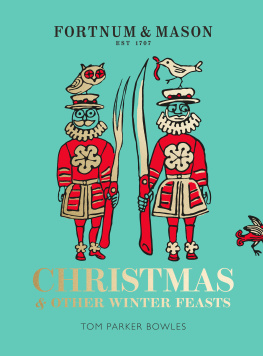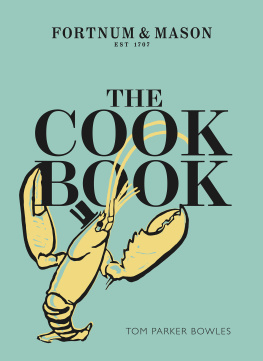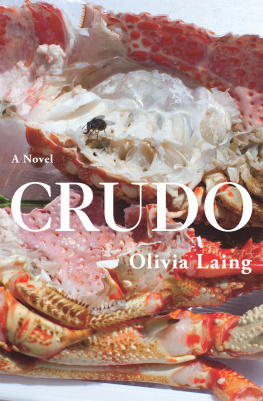Olivia Potts
A HALF BAKED IDEA
How grief, love and cake took me from the courtroom to Le Cordon Bleu

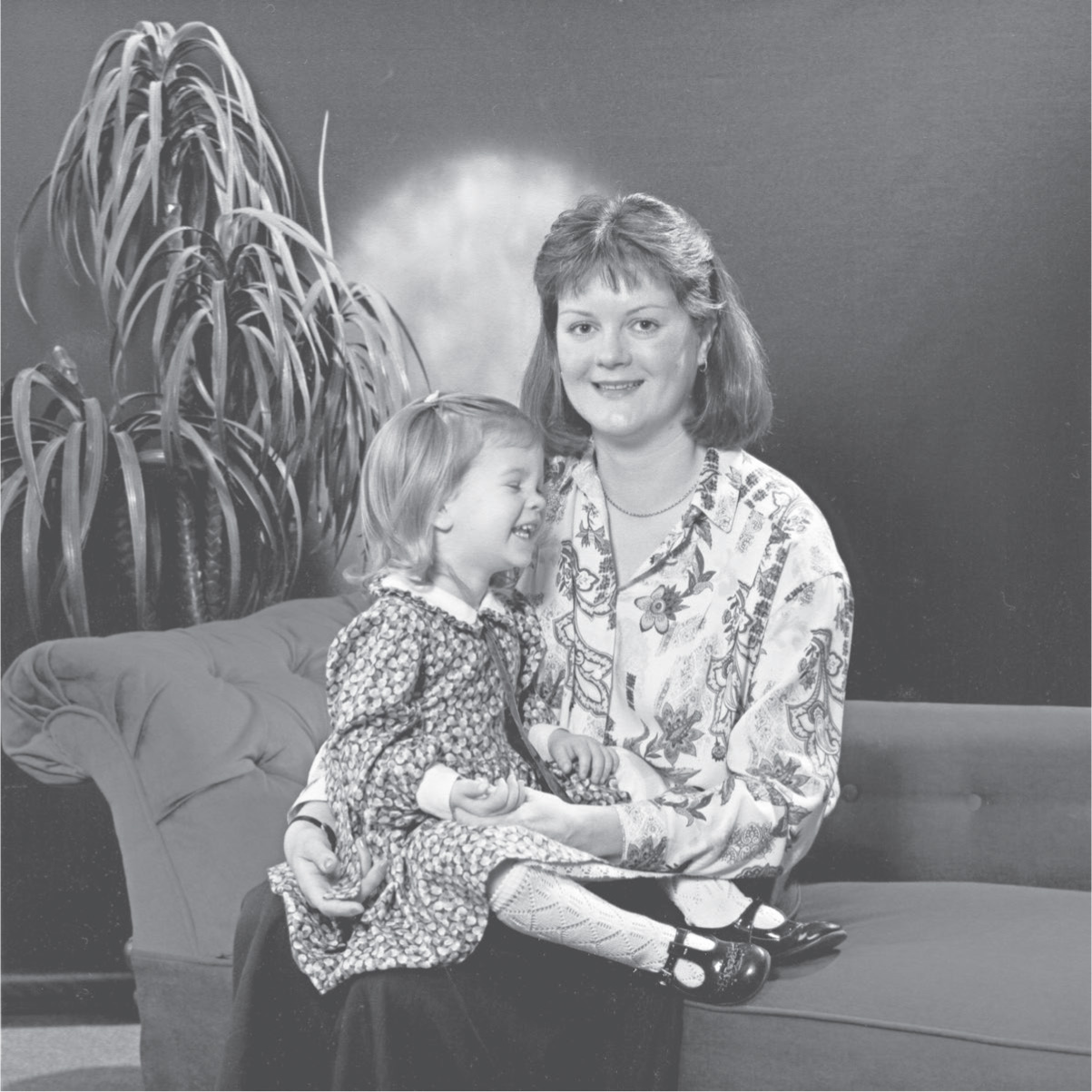
PENGUIN BOOKS
UK | USA | Canada | Ireland | Australia
India | New Zealand | South Africa
Penguin Books is part of the Penguin Random House group of companies whose addresses can be found at global.penguinrandomhouse.com.

First published by Fig Tree 2019
Published in Penguin Books 2020
Copyright Olivia Potts, 2019
The moral right of the author has been asserted
Cover design by Helen Crawford-White
Grateful acknowledgement is made for permission to quote from the following: on , an excerpt from From Attachment and Loss Volume 3: Loss, Sadness and Depression by John Bowlby published by The Hogarth Press. Reproduced by kind permission of The Random House Group Ltd. 1980.
This book is a work of non-fiction based on the life, experiences and recollections of Olivia Potts. In some cases names of people, places, dates and sequences of the detail of events have been changed to protect the privacy of others.
ISBN: 978-0-241-38047-5
This ebook is copyright material and must not be copied, reproduced, transferred, distributed, leased, licensed or publicly performed or used in any way except as specifically permitted in writing by the publishers, as allowed under the terms and conditions under which it was purchased or as strictly permitted by applicable copyright law. Any unauthorized distribution or use of this text may be a direct infringement of the authors and publishers rights and those responsible may be liable in law accordingly.
For Mummy, but because of Sam

1
When someone close to you dies, an odd thing happens. Whatever is happening at the time takes on a special resonance. Maybe you were watching Emmerdale, or on your way to a Pilates class, or buying a particular brand of chocolate biscuit.
There neednt be anything special about the activity; indeed, usually, there isnt. Death has a knack of arriving at the most mundane moments. But it is mundane moments that make up most of our lives. And so, without meaning to, youll probably find yourself returning to that activity, and reliving the death, over and over. Emmerdale becomes harder to watch; Pilates loses its appeal. As time passes, grief slows, it moves from a gasping stab to a dull ache; it moves from standing in front of you, obscuring your vision, to one pace behind you, present, distracting, but unremarkable. But those biscuits? They will always bring you right back to that moment, in a way that will take your breath away, and break your heart in two.
Its sensible, then, to do your best to avoid that activity. To solve the problem by running away from it, as fast as you can. Coronation Street scratches a similar itch to Emmerdale; no one really likes Pilates anyway. And there are always new biscuits to try. The problem comes when you find out, to your surprise, that the tainted activity is one you want to spend the rest of your life doing.
When my mother died, I was cooking. I was not a cook. I did not cook. I ate high-street-chain sandwiches, supermarket filled pasta, and more takeaway kebabs than I was comfortable admitting. My rare, haphazard forays into the kitchen led to fallen cakes, burnt biscuits, and stringy stews. But I had recently started dating a man a man who was very keen on cooking, and whom I was keen to impress. One weekend, he suggested we cook together for friends. And I thought, Oh God, that sounds like a terrible idea. But I said, Sounds great. And so I found myself standing in a kitchen that was not my own, baking a cake alongside a man I didnt know.
Meanwhile, 275 miles away, my mother was dying.
Id spoken to my mother earlier that day on the phone. Id told her about this man, and what I took to be his faults: he wasnt sure he wanted children, and hed recently returned to vegetarianism, something I had inexplicably taken as an affront. Dont worry, darling, Mum had replied. Bring him home to meet your mother: Ill point out your child-bearing hips, and feed him my shepherds pie. Thatll sort him out. When I met your father, he was wearing a blue velvet dinner suit. You can change anything, she had concluded. Id laughed, and told her it would be a good story to recount if we ever got married. Shed yawned, and wed said goodbye to one another.
I didnt know then what I would know sixteen hours later: that that yawn was a death knell, a swan song; a yawn so commonplace, so trivial that meant she wasnt getting enough oxygen. A yawn that said she was dying. Later, I would replay that conversation, that yawn, over and over again. Her body was already preparing itself for what would happen over the next few hours. Entirely self-interested, I hadnt even asked her how she was, though I did promise to call her the next day with a full post-mortem on the supper. The irony would only occur to me later.
My mother was 275 miles away, and she was dying. But I didnt know this. So I drank, and I laughed, and I presented the cake I had made for the evening a clementine and almond cake, the one cake I knew how to bake proudly. I did the washing up, badly, drunkenly. The man who was not my boyfriend later redid this washing up, not mentioning the shoddiness of the original job, in that quiet way that is peculiar to a couple who have not yet established their status as a couple. Id half-done the washing up, then Id slid into a bed that was not my own. And 275 miles away, my mother was dead.
The next afternoon, an impossibly blue February day, as cold as it was bright, my phone rang. My home phone number flashed up on the screen. I didnt get to it in time and the screen darkened. Then a voicemail flashed up. It doesnt matter how many times I ask my father not to leave voicemails, he persists in doing so. I rolled my eyes, irritated. He knows how I feel about voicemails.
Begrudgingly, I called my voicemail, sitting on the loo. All he said was to call him back, but I could immediately tell that something serious had happened. I hung up, and rang home. He answered instantly. And though I may not want to remember what followed, I do.
One of the realities of the death of someone close to you is that you will have to relay that news to other people, over and over again. Its not surprising that this becomes easier, although it never loses its inherent awkwardness, a peculiar embarrassment that manifests itself as an apology: Im so sorry, I have some awful news The apologetic self-consciousness intensifies at their shock, their sadness. Your grief feels like an inconvenience, sparking a cringing guilt.
You do get better at it. Of course you do. You have variations on the same conversation repeatedly, every day for years. You create a formula of words that makes the whole thing as painless as possible. You find a way of making it as easy for the other person as you can. You make it quick, efficient, like ripping off a plaster. Perhaps you even find a gentle joke that you can tack on to the end of the conversation to break the tension.

